Home / / Photo / Sculptures / Curatorial Projects / Bio / Contact
![]()
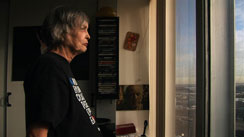
![]()
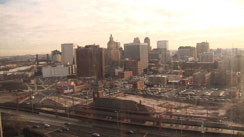
![]()
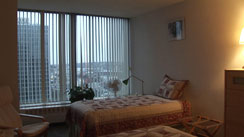
![]()
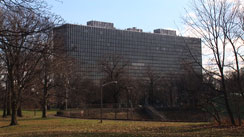
![]()
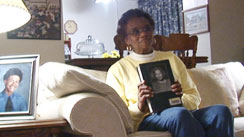
![]()
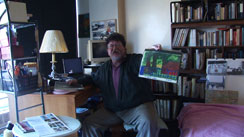
![]()
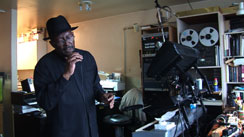
![]()
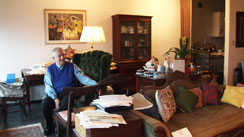
![]()
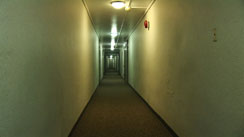
![]()
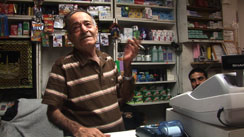
![]()
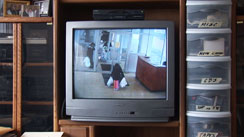
![]()
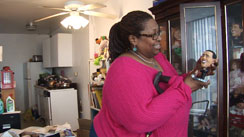
![]()
![]()
> back
![]() > reviews
> reviews
![]() > view excerpt
> view excerpt
![]()
quotes from interviews
It’s an ideal place to live! I have traveled quite a bit in my life. I have been to 36 states in this country and I haven’t seen any place else I wanna live...
When we moved here it was maybe 85% Caucasian. A lot of professional people. Lawyers and doctors and dentists and teachers. So we just blended right in. (Mary Garrett)
I moved down to the 13th floor on the New York side and that is a glamour view! That, today, is still one of the great reasons to live in the Mies van der Rohe building – because it’s glass windows from your knees up to the ceiling. There is nothing in front of you, pretty much, except light and air. And I never bothered to move because I would miss the view. It’s a Hollywood movie set view, there is no question about it. (Bill Dane)
We tend to be very insulary. Once we get home we stay home. And I think that is what the original plan of the architect was – that this becomes a type of utopia because we have a grocery store downstairs, we had a cleaners, we have a laundry, we had a barber shop, we have an art gallery. So when we have snow days we’re totally fine. (Talibah Sun)
Each floor has fourteen apartments. The way these buildings work is that your neighborhood is your floor. These are the people that you know. And then you may have other friends in the building based on common interests – you know like jazz, or politics, or what have you… but much less so. (Glen Scutt)
When you go down south, you hear crickets. When you come here, you hear [Route] 280. About two, three months ago they were chasing a car they thought was stolen. It was a shoot-out on 280. So I woke up with helicopters all in my windows. That’s interesting! Who needs HBO? You live here in Newark, you live in the Pavilion Apartments. Look out your window! Go in the lobby! (Stefanie Tucker)
This is a huge building, 562 apartments. Must be several thousand people here. It’s a small town.
This building like any has its dramas, things can happen anywhere. It’s a community and I am impressed that the building functions so well. (Mike Wright)
When I moved into the Colonnade, you had to have letters of reference to get in, as well as a certain amount of income. it was all professionals. You weren’t even allowed to wear boots. If you went out in boots and garbage, you had to use the back elevator. You couldn’t come through the front... You had to be announced. You couldn’t get in to anyone’s apartment. You couldn’t get in without permission. (Douglas Wiggs)
In large apartment buildings in some ways people feel more comfortable by not being too close to their neighbors. It’s something that could be usefully addressed. You almost need a common enemy. When we had that rent strike, the common enemy was, we were – some people were afraid of being killed. That’s a good motivator. (Glen Scutt)
His influence, whether he built the buildings or designed them or not, the glass facades – and minimal construction with heavy metal or concrete – that was his great contribution to 20th century world architecture, and one is part of it by living there. (Bill Dane)
It was like living in a cubicle. Everything was totally square, to say the least. And of course, the modern glass front. It was functional, in an urban setting, because of exactly that. (Douglas Wiggs)
When I saw this, I was like “oh!” I couldn’t say no. I have a dressing area, I have two closets, so it was great. It just feels so open and airy.
And the amenities are great: you have a little store downstairs, the laundry is downstairs, but what I love is the bus. The bus comes through the complex so it is great. And the people in the building are very friendly, very nice people. The funny thing is that I thought when I got out here I thought it would be less diversified than Brooklyn. It’s more so… everybody, stewards, stewardesses, drivers, just different people. (Reecie)
-